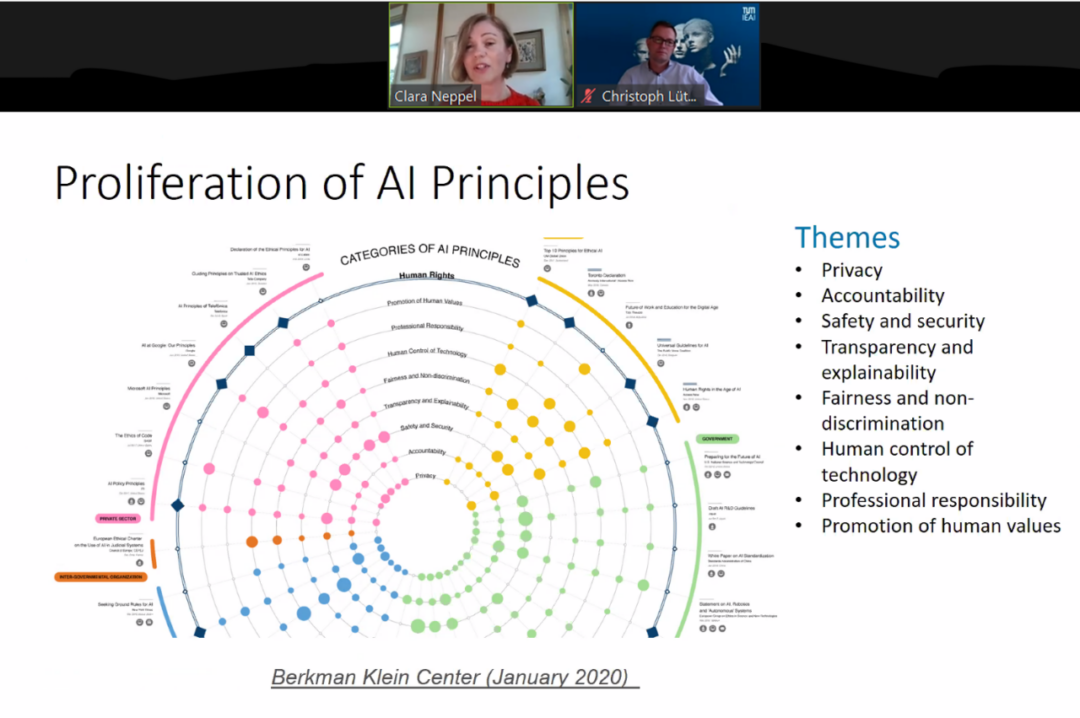AI is useful, but it needs human control
Trust in AI technology is key, according to Dr. Clara Neppel, Senior Director of the IEEE European office in Vienna. In her talk about Using Ethics Standardization and Certification for Establishing Trust in the AI Ecosystem at the IEAI Speaker Series on 18 June 2020, she elaborated on this using a currently highly relevant example: the Corona Tracing App.
As the title of her presentation suggests, Dr. Neppel believes that one important way of creating trust in AI systems is using value-based national and international standards and certifications. Creating rules to make new, groundbreaking technology safer is not a new idea. When cars first became widely available at the beginning of the 20th century, there were no rules or regulations on how or where to drive them, resulting in countless avoidable accidents. Only after several years did governments create lanes, speed limits, traffic signs and other regulations that helped make roads safer for drivers and pedestrians alike.
Similarly, standardization of ethical principles in AI ecosystem has many benefits: reliability of the technology, transparency, clear guidelines for companies, control of data sourcing, storage and ownership, fairness, and accountability. Not only are these benefits elementary to create better and safer AI systems, but also to foster trust in the technology among consumers and users. We slowly start to have a better idea of the possibilities and limits of AI, most currently exemplified by the use of AI to manage the COVID-19 crisis. AI, in its current form, is useful for analyzing information and making data-based predictions. However, it neither has a moral compass, nor can it create new ideas or transfer its knowledge to new problems. That is why, ultimately, it will always be up to humans to set AI within an ethical framework, control its outcomes and use and create new solutions for a better future.
We were able to ask Dr. Neppel some brief questions prior to her talk about her lecture, AI ethics, how to apply AI ethics in practice, and the role of academia and research institutions in creating frameworks for AI. Read her answers in our Q&A series Reflections on AI.

